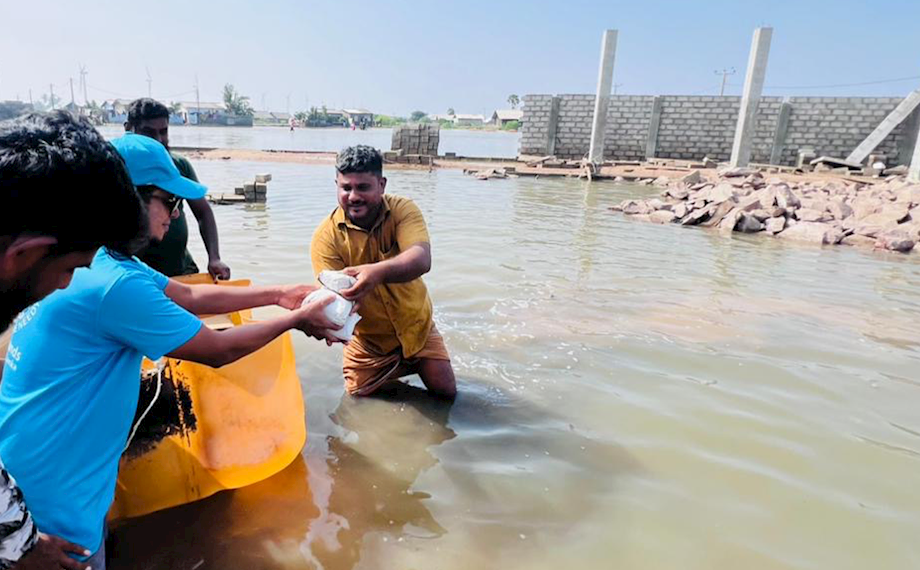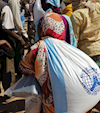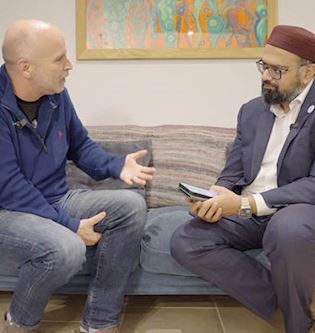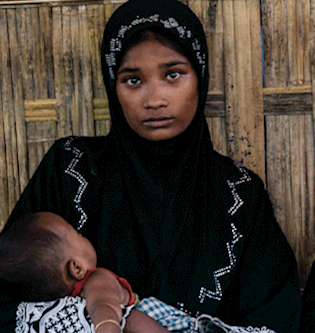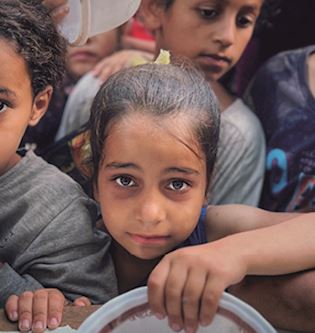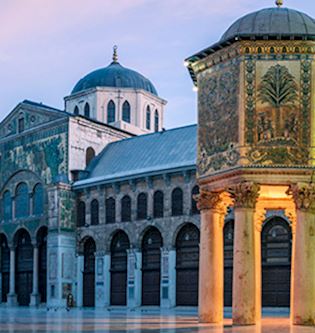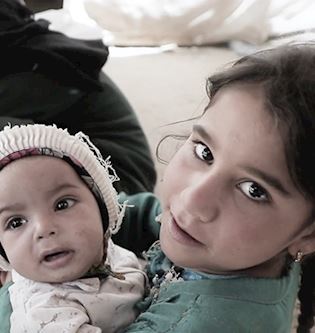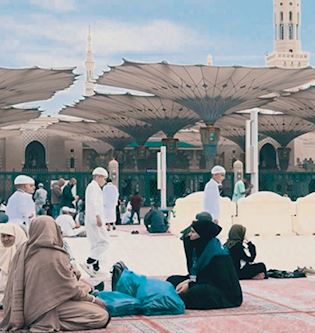Ethiopian Refugees: Why They Need Your Help

Over the last few weeks, people living in the Tigray State in Ethiopia have been fleeing over the border to Sudan, seeking asylum. This article will explain the refugees' situation, the situation in Sudan, humanitarian concerns and how you can help Ethiopian refugees cope with this crisis.
Situation in Ethiopia
Earlier this month, the Ethiopian government announced a six-month state of emergency in the Tigray State. This was the consequence of a conflict rooted in long-standing tension between the TPLF, the regional party in the Tigray State, and Ethiopia's central government.
Aid agencies have no access to the conflict zone, but they fear that thousands of civilians may have been killed since the beginning of November. The government has imposed a telecommunications and electricity blackout, cutting phone lines and switching off the internet, making it difficult to verify the number of people killed or displaced within Ethiopia.
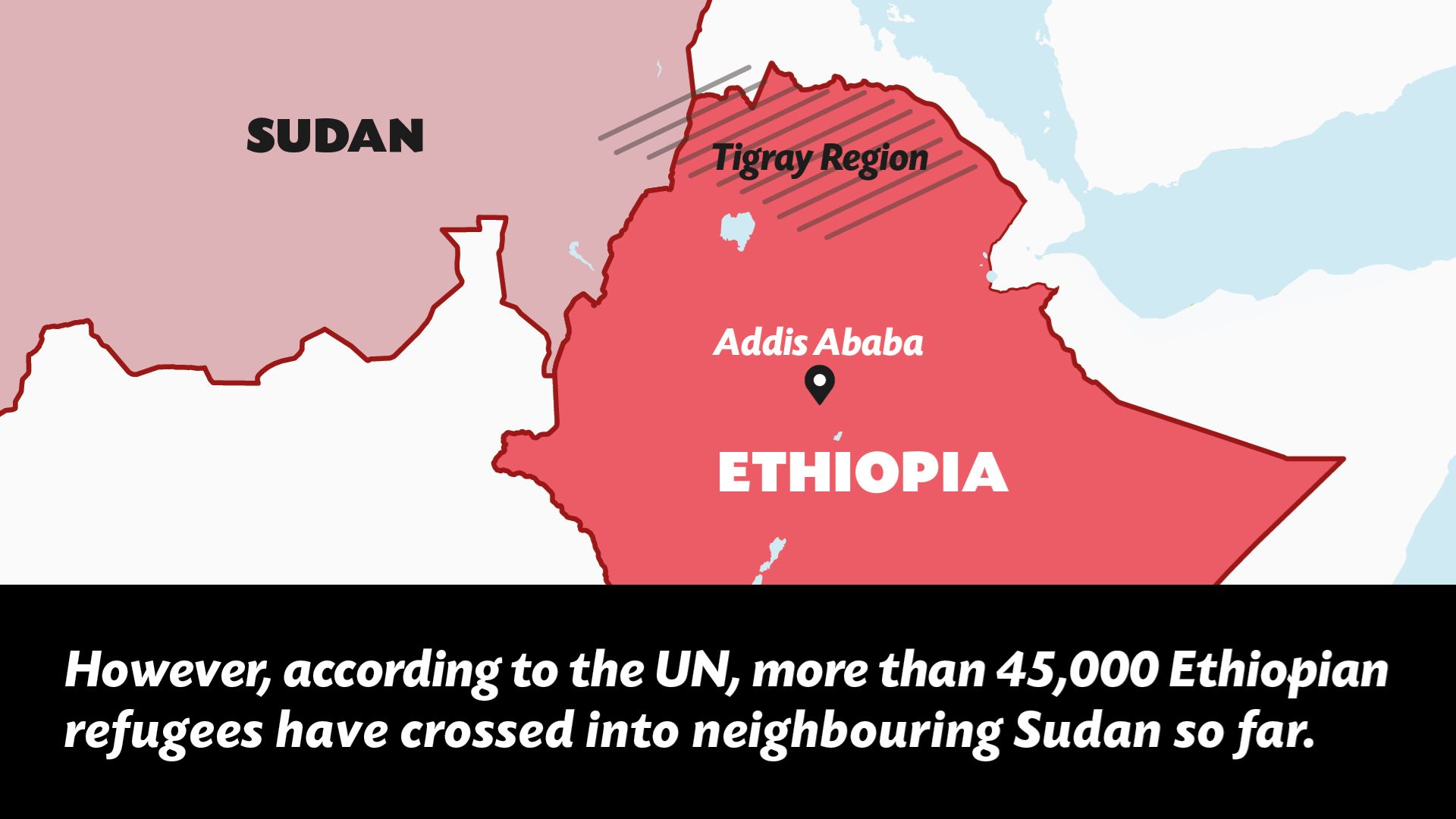
They were driven from their homes by violence, including bombs and shelling. Many of them were separated from family members during the conflict and their escape.
It is estimated that over 3,200 refugees are arriving every day in Sudan, although the number may be higher. Humanitarian agencies expect even more refugees to flee to Sudan as the conflict escalates. They are mostly arriving in the Kassala, Gadaref and Blue Nile States.
The UN has warned that this mass displacement could trigger a humanitarian crisis.
Situation in Sudan
As you may know, Sudan was devastated by record-breaking flash flooding this year. Heavy seasonal rains in eastern Africa caused the Nile River to rise to nearly 17.5 metres (around 57 feet): the highest level in 100 years.
Across Sudan, some 37,000 homes were destroyed by flooding, while another 39,000 houses were damaged. 34 schools were also damaged, as well as nearly 2,700 health facilities. Thousands of water sources in Sudan were damaged or contaminated.
380,000 people in Sudan were impacted, with the government declaring a state of emergency in Khartoum state.
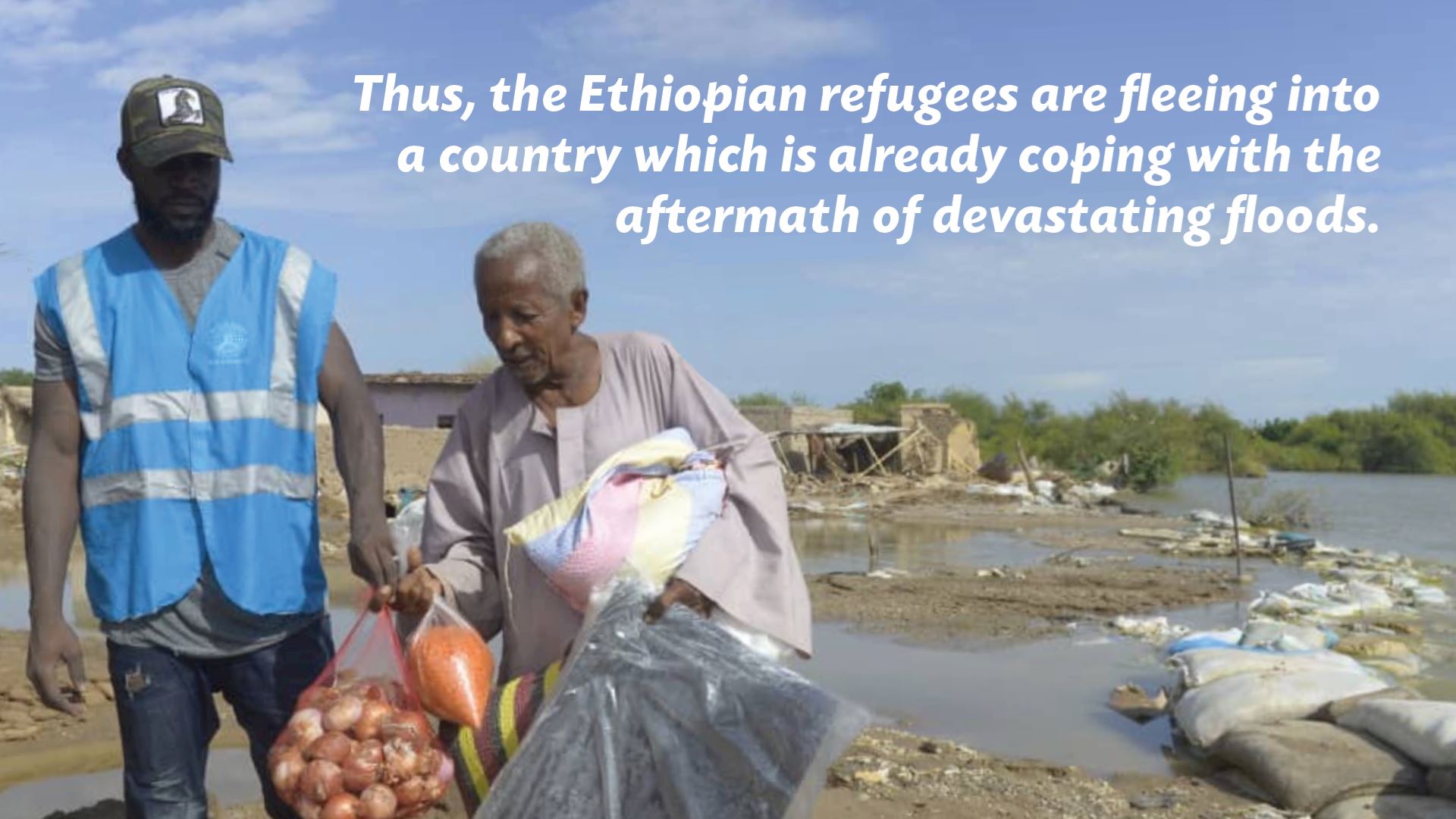
Additionally, Sudan is already supporting about a million people displaced from other African countries. There are also two million people internally displaced within Sudan, many of them living in IDP camps where they are dependent on humanitarian aid.
An estimated 125,000 refugees and IDPs were impacted by the recent floods. Resources to support displaced families are already completely stretched; recent crises, like the floods and the influx of Ethiopian refugees, will make them even more vulnerable.
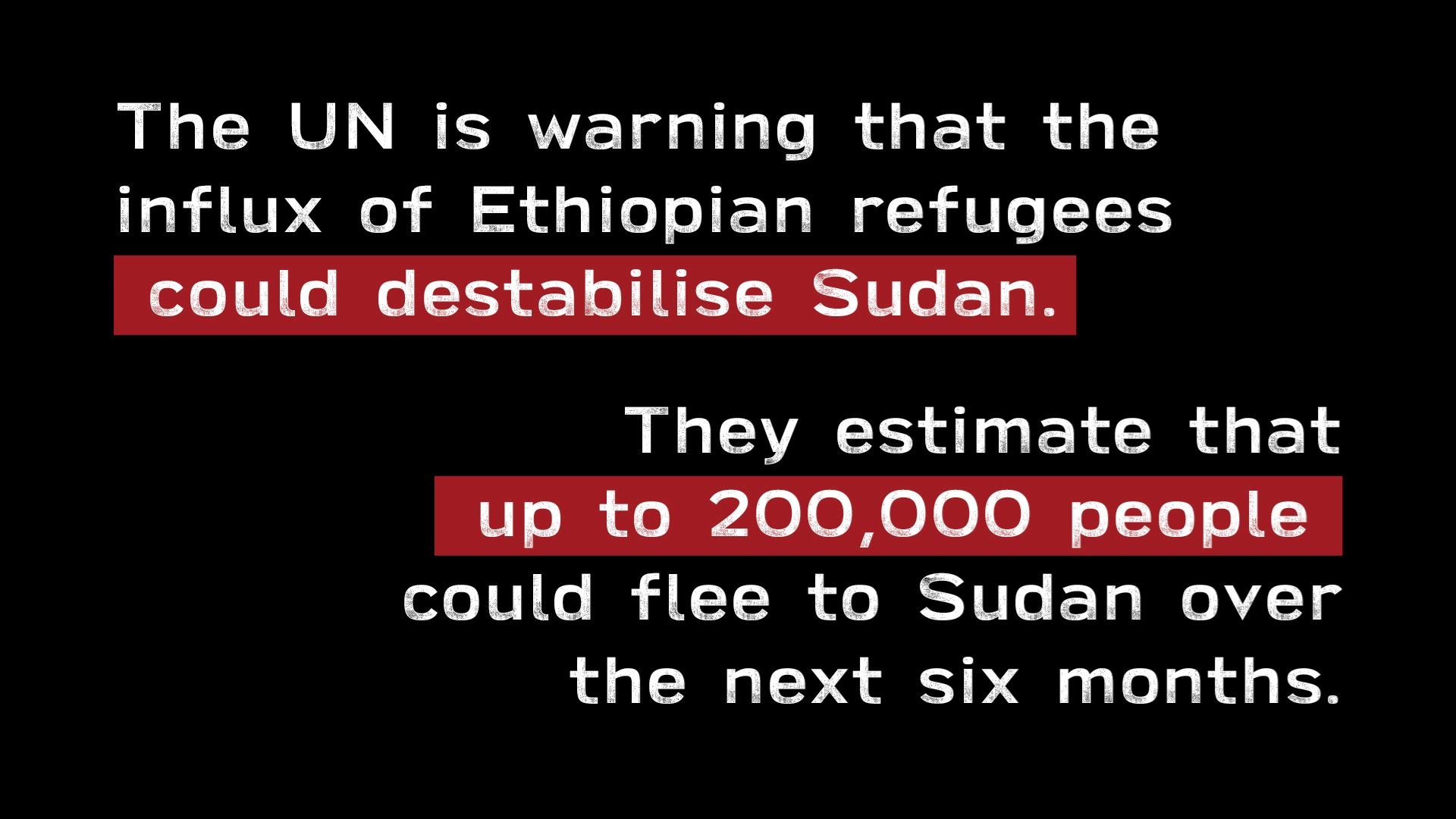
Humanitarian concerns
The refugees left everything behind to escape violence, many of them fleeing with only the clothes on their backs. They have lost their loved ones, as well as their homes and livelihoods, and they are now sleeping out in the open. They urgently need basic supplies to help them cope with their displacement, including food, clean water, medicine and PPE.
UNICEF has said it is particularly worried over the spread of disease among the refugees, nearly half of whom are children. Every day, thousands of refugees are arriving in Sudan, among them pregnant women and elderly people, and they are vulnerable to illness.
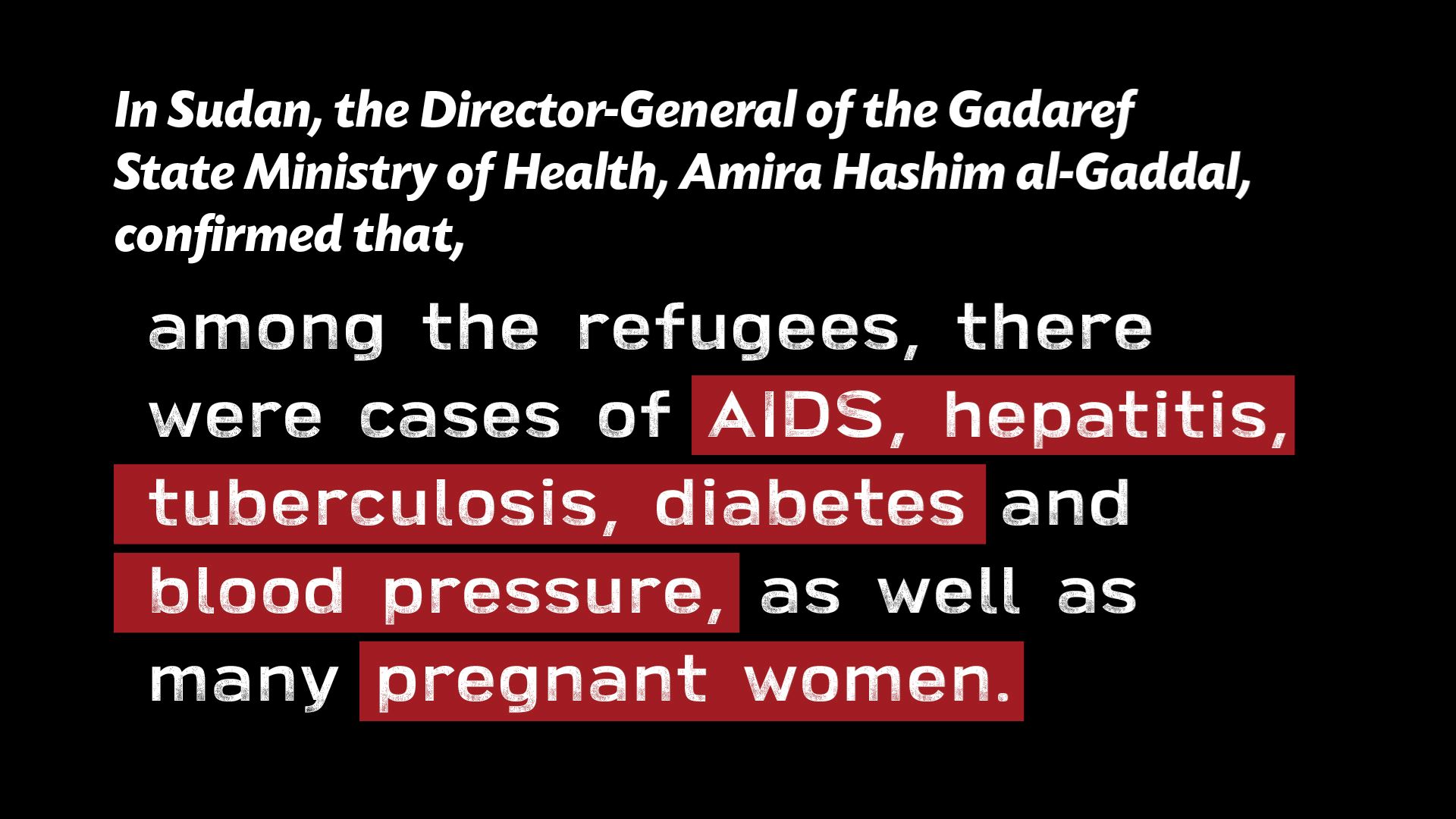
As well as hunger and illness, it is also imperative that we keep people safe from further violence, especially children and women. Many families were separated during their escape, making people even more vulnerable.
Moreover, the UN is concerned about how Sudan will cope with the increasing numbers of refugees arriving every day. They are estimating that up to 200,000 people could flee to Sudan, all of whom will need emergency supplies, as well as access to basic services like toilets and medical care.
This is why the UN are warning that the Ethiopian refugee emergency may trigger a humanitarian crisis.
A Prophetic connection
At Muslim Hands, we strive to respond to emergencies worldwide, from helping tsunami survivors in Indonesia to supporting flood-affected families in Mexico. However, the people of Ethiopia are particularly special to us. As our team in Sudan distributes humanitarian aid to Ethiopian refugees, we are profoundly aware that we are serving the people the Prophet (saw) himself once served.
Fourteen hundred years ago, as the Companions of the Prophet (saw) endured torture and persecution at the hands of the Quraish in Makkah, a group of them emigrated to Abyssinia, or present-day Ethiopia. The Christian king of Ethiopia, known as the Negus, welcomed them as warmly as if they were his own people.
These Companions (ra) stayed in Ethiopia for 10 years. The Negus also welcomed a second emigration of around 100 people. And the Prophet (saw) never forgot how the Ethiopians protected his followers when they were vulnerable. Later, he (saw) received a delegation from Ethiopia with the utmost warmth and hospitality:

Moreover, when the Negus later passed away, the Prophet (saw) said, 'Today, a pious man has died. So get up and offer the funeral prayer for your brother, As-hama'. [Bukhari]
He (saw) led the Janazah (funeral prayer) for the Negus and told people to pray for his forgiveness.
Serve the people of Ethiopia
The people of Ethiopia once granted asylum to persecuted Muslims. Today, thousands of Ethiopian refugees are fleeing into a Muslim land: Sudan. Despite already hosting one million refugees, and despite coping with the devastating aftermath of recent record-breaking floods, Sudan is welcoming these people in their hour of need.
SubhanAllah, they are truly following the example of the Ansar of Madinah, about whom Allah (swt) said, 'They prefer others over themselves, even if they themselves are in need'. [The Noble Qur'an, 59:9]
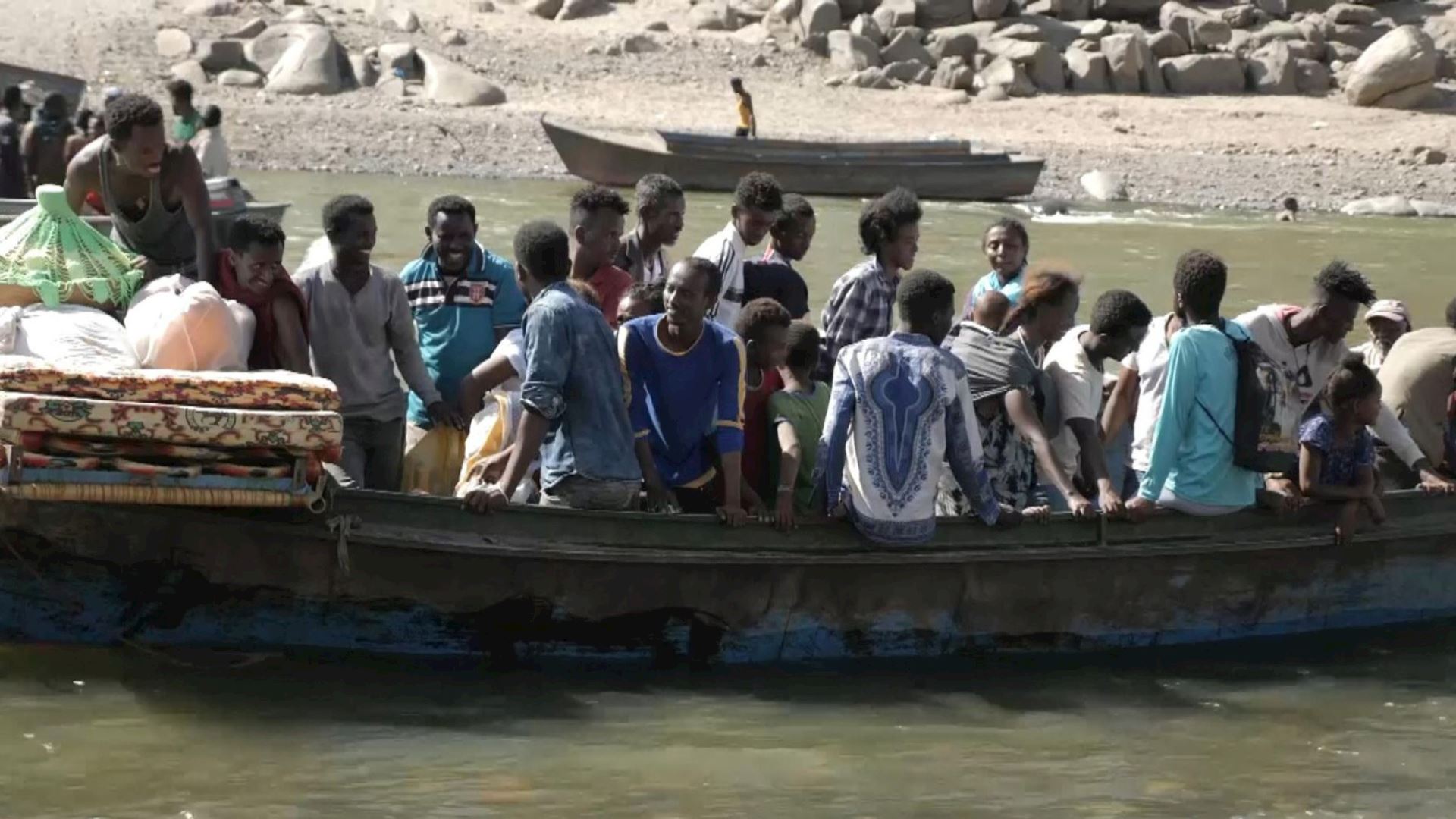
As our team in Sudan distributes aid, we know that it is not only our responsibility to help the people of Ethiopia during this crisis - it is also our privilege. It is an honour to stand up and serve the people whom the Prophet (saw) once stood up to serve. It is an honour to protect them and give them refuge, as they once gave refuge to the Companions (ra) of the Prophet (saw).
Our team in Sudan is distributing basic foods like flour and lentils, as well as blankets, mosquito nets, face masks, soap and more to Ethiopian refugees. Just £60 can provide these basic supplies to an Ethiopian refugee family, helping them get through the worst of the crisis.
Donate now to serve the people whom the Prophet (saw) once served.





